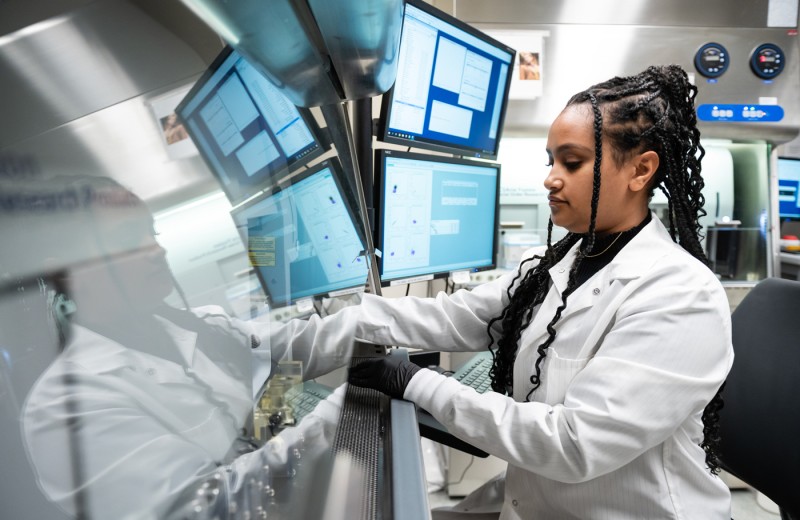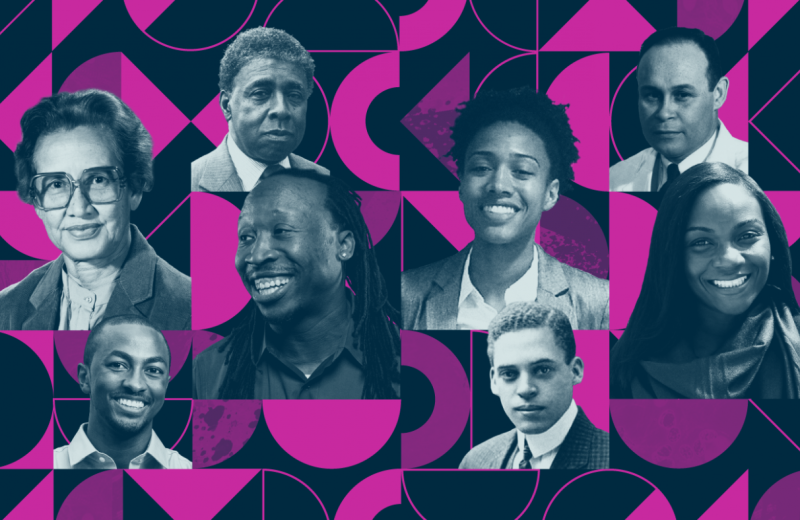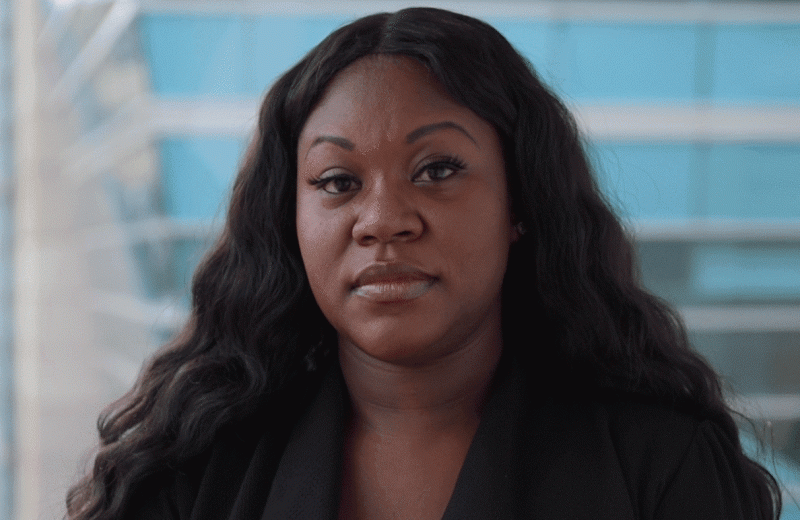Gladstone NOW: The Campaign Join Us on the Journey✕

The series Amplified: Race and Reality in STEM has already gained an overwhelmingly positive response.
Women and Black PhD holders are the most likely to leave science, technology, engineering, and math (STEM) careers. And they don’t just leave academia, but leave behind STEM entirely, because these fields are unwelcoming and disproportionately taxing on them. This was just one of the startling facts that Ebony O. McGee shared at her recent talk Black, Brown, and Bruised: How Racialized STEM Education Stifles Innovation.
This event was hosted as part of a new series, Amplified: Race and Reality in STEM. Launched in August 2020, this series is hosted in partnership with Gladstone Institutes, Georgia Institute of Technology (Georgia Tech), the Molecular Engineering & Sciences Institute at University of Washington, and The University of Texas at Austin (UT Austin).
Over the summer, after the murder of George Floyd sparked protests throughout the country over the systemic racism found in the police force throughout the country, Gladstone leadership asked what the organization could do during this time. One of the first suggestions that came from Gladstone’s community was a desire for more education around racial inequality.
“We first launched an internal series for our Gladstone community called Critical Conversations,” says Megan McDevitt, vice president of communications at Gladstone. “We’ve been bringing in speakers from a variety of fields to offer our community new and different perspectives. Topics have covered microaggressions, using precise language, and the history of racism in the United States.”
But the idea to bring some of these conversations to a national stage really took off after Manu Platt, PhD, associate professor in the department of biomedical engineering at Georgia Tech and Emory University, gave his presentation to Gladstone.
Platt gave the talk Gaslighting in the Academy: Actually Making Black Lives Matter, in which he discussed the ways that academia misleads Black faculty, students, and staff into believing that either racism doesn’t exist on its campus or that they will make appropriate systemic changes, only to disappoint their community in the end.
“Manu has a way of talking about difficult topics that really resonates with people,” says McDevitt. “His talk received an overwhelmingly positive response at a time when many people needed to hear his message. I knew it needed to be shared with a bigger audience.”
McDevitt reached out to her colleagues at Georgia Tech, University of Washington, and UT Austin—all of whom instantly agreed to partner. Thus, Amplified: Race and Reality in STEM was born. The series aims to give a national platform to speakers to have candid conversations around race and diversity in the STEM fields.
“It’s important to keep the conversation going,” says Platt. “Black and Brown students have been let down so many times by their institutions and we can’t let that happen again. We’ve committed to continue this programming and keep the topics around race, inclusivity, and equity, top of mind for everyone at our universities and institutions.”
For the first talk, Platt repeated his talk to a broader audience of professors, students, postdocs, and other staff from academic institutions. So many participants attended that Gladstone maxed out its Zoom webinar account.
“The response has been incredible,” says Patrick Stayton, PhD, director of Molecular Engineering and Sciences Institute at University of Washington, and a collaborator for the series. “It’s important to shed a light on the reality that many people are living. Not only are Black and Brown students working hard to achieve their goals within STEM but then they have to face an environment that refuses to acknowledge how it’s kept out Black and Brown students.”
And the series has gained much attention. Most recently, the Bay Area Science Festival reached out to host one of the events during the 2020 festival. Tyrone Porter, PhD, from UT Austin will be discussing the cultural tax of being the only or one of the few Black students or professionals.
“In order to become an anti-racist organization, we need to have some hard discussions,” says Gladstone President Deepak Srivastava, MD. “While we know that we still have work to do within Gladstone, we want to help usher in a new more inclusive era throughout the STEM fields and we’re excited to be able to provide a national platform for these essential conversations.”
The committee for this series is composed of Megan McDevitt, Todd McDevitt, Manu Platt, Tyrone Porter, and Patrick Stayton. If you have a suggestion for a speaker for the Amplified series, email the Communications Department at Gladstone.
Want to Join the Team?
Our people are our most important asset. We offer a wide array of career opportunities both in our administrative offices and in our labs.
Explore CareersProfessional Journeys of Black Gladstonians
Professional Journeys of Black Gladstonians
Get to know our Gladstone community during Black History Month
Profile Elevated Voices DiversityHighlighting Black Scientists from Past to Present
Highlighting Black Scientists from Past to Present
Featuring Black scientists throughout history
Elevated Voices DiversityMeet Gladstone: Nicole Velasquez
Meet Gladstone: Nicole Velasquez
Nicole Velasquez shares why she loves working at Gladstone, the importance of Black History Month, and how she spends her time outside of work
Elevated Voices Profile Diversity



